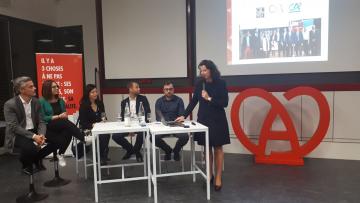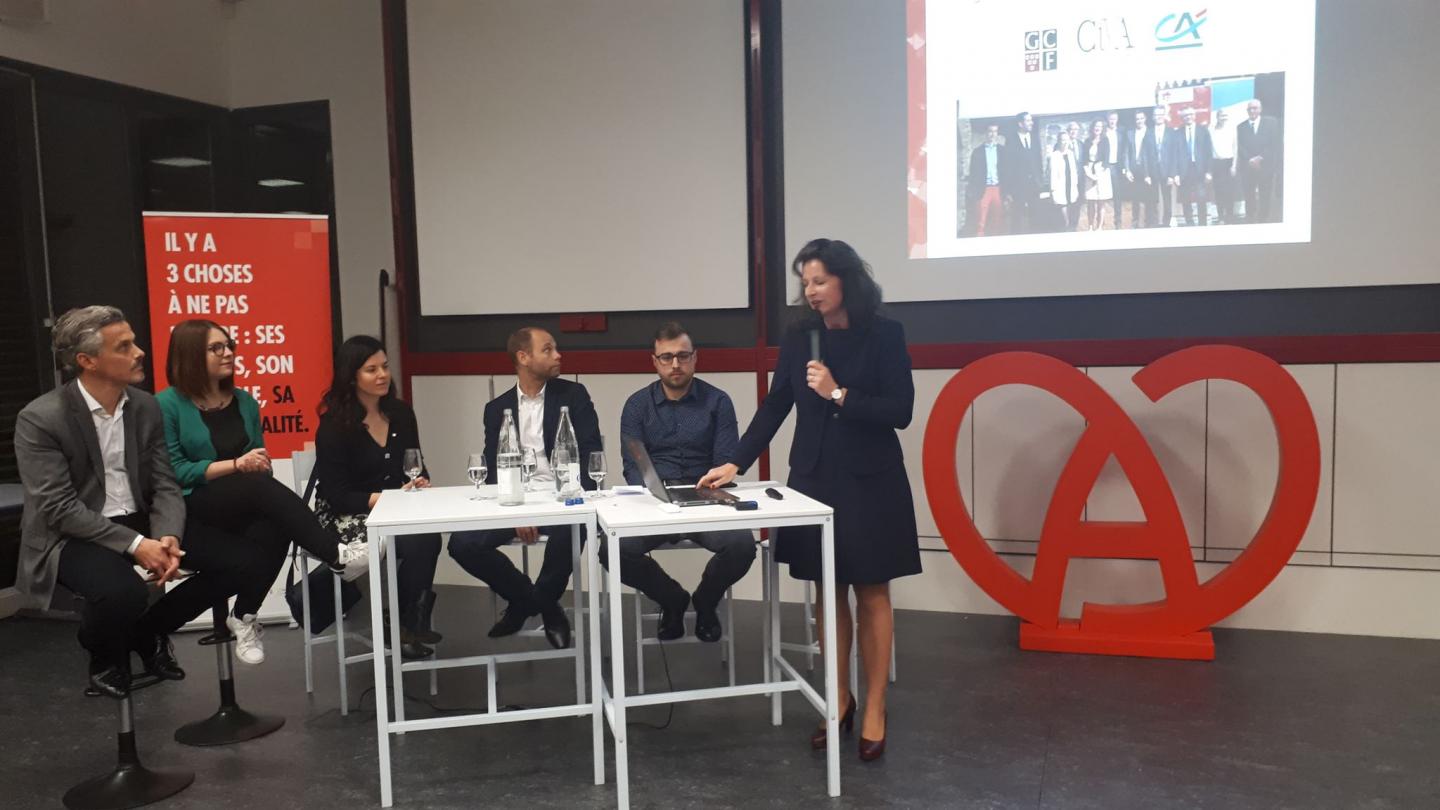
From travel agencies to hotels, no tourism professional will say the opposite: digital has had a profound impact on their profession. This context gives rise to new opportunities and pitfalls that must not be overlooked if tourism is to continue to work with digitally savvy travelers, from preparing their trip to sharing their impressions. Between the two, many back or front office roles are affected, as attested by the witnesses invited to the conference “Digitization of the Tourism Industry: Challenges and Perspectives” organized by Coralie Haller, Research Lecturer and Head of the Wine and Tourism Chair at EM Strasbourg.
No one will be surprised. The tourism sector is one of the areas most impacted by digitization, as it has been for a long time. This phenomenon is obliging stakeholders, whether they are tour operators, hotels, restaurants, destinations, or cultural venues, to react so as not to lose out to competitors who have turned the corner in time or to customers who, regardless of age, have made technology an ally for their vacation. No one today prepares a trip without surfing the internet or consulting social networks, Instagram, or Facebook pages, and sites specialized in ratings and recommendations. Although the ‘official’ pages, which are by nature more favorable, are consulted, the images, comments, and notes left by tourists on networks and forums are also valuable indicators for those who are preparing their trip. They constitute a formidable sounding board if they are positive. But can also be detrimental in terms of reputation in case of bad buzz. Professionals must therefore take them into account in order to improve and monitor their image. Not to mention the blogs or Instagram pages of influencers that sometimes have up to tens of thousands of followers.
No one today prepares a trip without surfing the internet or consulting social networks, Instagram, or Facebook pages, and sites specialized in ratings and recommendations.
Logically, tour operators have had to adapt to this situation, which has led to the emergence of very aggressive pure players on the web. The Colmar travel agency LK Tours (65,000 travelers per year) has thus asked itself how best to maintain traffic in its 15 outlets. “In this context of digital transformation, we wanted to offer our clients a unique experience in our agencies,” explains Stefan Vrtikapa, Marketing and Business Development Manager, “so we chose to use virtual reality to help them view some of the destinations in our catalogue.” They provide a phygital experience based on immersive videos filmed by the Strasbourg agency Virtual Journey but also 3D and interactive views of the LK company's grand touring coaches. This recent initiative, currently being rolled out in the agencies, is already beginning to bear fruit at the tourism fairs that LK Tours attends.
Room for Imagination
This phenomenon of digitization has also given rise to some fine initiatives for tourists, giving free rein to developers' imagination. The company Crikoo was born out of this in the minds of Arnaud Schittly and Mathieu Schuller and as part of the France Tourisme Lab network. The idea: to create stories for smartphones in order to discover tourist attractions. This is a fun and simple way to immerse yourself in a region with multimedia content such as, for example, a riddle to be solved on a given route. “It is with this idea in mind, to enable the emergence of innovative tourism startups, that we have formed a partnership with France Tourisme Lab, like other banks in France,” says Jean-Philippe Loir-Mongazon, Mayor of the Mulhouse Village by CA within Crédit Agricole Alsace Vosges.
Making Life Easier for Operators
In the same spirit, digital is gradually becoming established in tourism stakeholders’ back offices. Often confronted with recruitment difficulties, professionals in the restaurant and hotel business are seeing a new range of specialized services flourish to find the necessary skilled labor. There are online platforms designed to make their lives easier, such as Badakan, an application brings together a pool of competent personnel and professionals with roles to offer. “In addition to the site taking care of administrative and contractual aspects, Badakan also relies on a rating system for its members to reassure employers and vice versa,” explains Marion Besancenot, who is in charge of operations and recruitment at the site. A good example of what digital can bring to professionals in the sector on a daily basis.
Professionals in the restaurant and hotel business are seeing a new range of specialized services flourish to find the necessary skilled labor.
The same applies to Legal Tech created by Elise Fabing, a lawyer specializing in tourism law, originally for the French tourist office network. “We want to offer our clients a platform with accessible and clear legal information on tourism law and a system of automated answers to the simplest questions they may have,” she explains. A way to save time and money while strengthening the relationship with the legal professions. “This enables us to optimize processes and costs so that we can be more available and concentrate on tasks with high added value”, adds Elise Fabing.
So many fine examples of the value that can be brought to tourism professionals by digital tools, provided that they get to grips with them and do not allow themselves to be overwhelmed.
